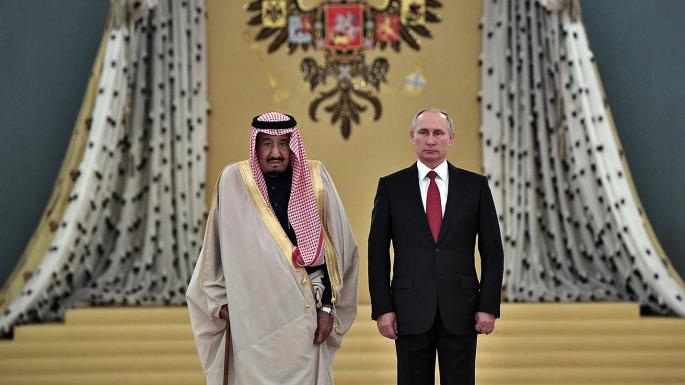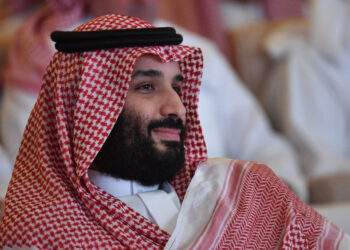Much of the media coverage of the recent visit to Russia by King Salman of Saudi Arabia focused on two aspects of the trip. First, its historic nature — given that it was the first time a Saudi monarch had gone to Moscow. And second, the malfunctioning of the golden escalator that the King travels with, which forced him to walk down the stairs in order to get off the plane.
The trip was also an illustration of the old adage, attributed to any number of statesmen, that countries don’t have friends, they have interests.
In the past, Saudi Arabia opposed Russian involvement in the Middle East because it did not want thoughts of revolutions and communism posing a threat to rule by royalty. For that reason, Saudi relations with the United States, while often difficult, have been fundamentally important to Riyadh for many years.
Now both Russia and Saudi Arabia have much in common, which is bringing them closer together than they ever were in the past. First and foremost, they are both autocratic regimes dependent on oil exports to fund their efforts to keep any political opposition tightly contained.
They both, therefore, have an interest in rising petroleum prices and limiting any threats to their own internal stability. They both also want to increase their influence throughout the Middle East, undermine their foes and strengthen their friends in the region.
It is therefore not surprising that the King was eager to diversify his portfolio of friends. He did that by bringing his checkbook on the trip and agreeing to spend billions on a Russian air defense system and other armaments, promising to invest $10 billion in Russia over the next five years and exploring the purchase of Russian nuclear power reactors.
Vladimir Putin was obviously very happy to make the sales in order to ease the economic pain inflicted by low oil prices and the economic sanctions imposed by the West because of the annexation of Crimea and the aggression against Ukraine.
Besides the common interests that both countries now have, there was another motivation for the King’s trip. The fact that the United States can no longer be counted upon as a reliable ally from the Saudi point of view. This began with the Obama administration, which drew red lines in Syria and then erased them, thereby projecting an image of weakness. It also gave the impression of being too absorbed in winding down the wars in Iraq and Afghanistan to pay much attention to the rest of the region.
On top of that Saudi Arabia, along with every other country in the world, has to contend with the whiplash that comes from trying to follow the foreign policy of the Trump administration. While his Secretary of State Rex Tillerson tries to project an air of competence, his boss dismantles that on a daily basis one tweet at a time.
Both men, lacking any previous experience in government, the military or the ways of Washington are completely clueless as to how to formulate and implement policy, as well as never being on the same page.
Uncertainty over where Washington stands on the Saudi dispute with Qatar is but one example of why the King was hedging his bets by traveling to Moscow. With friends like the regime in power in the United States, he is wise to do whatever he can to look after his interests.
Disclaimer: The views and opinions expressed here are those of the author and do not necessarily reflect the editorial position of The Globe Post.






















